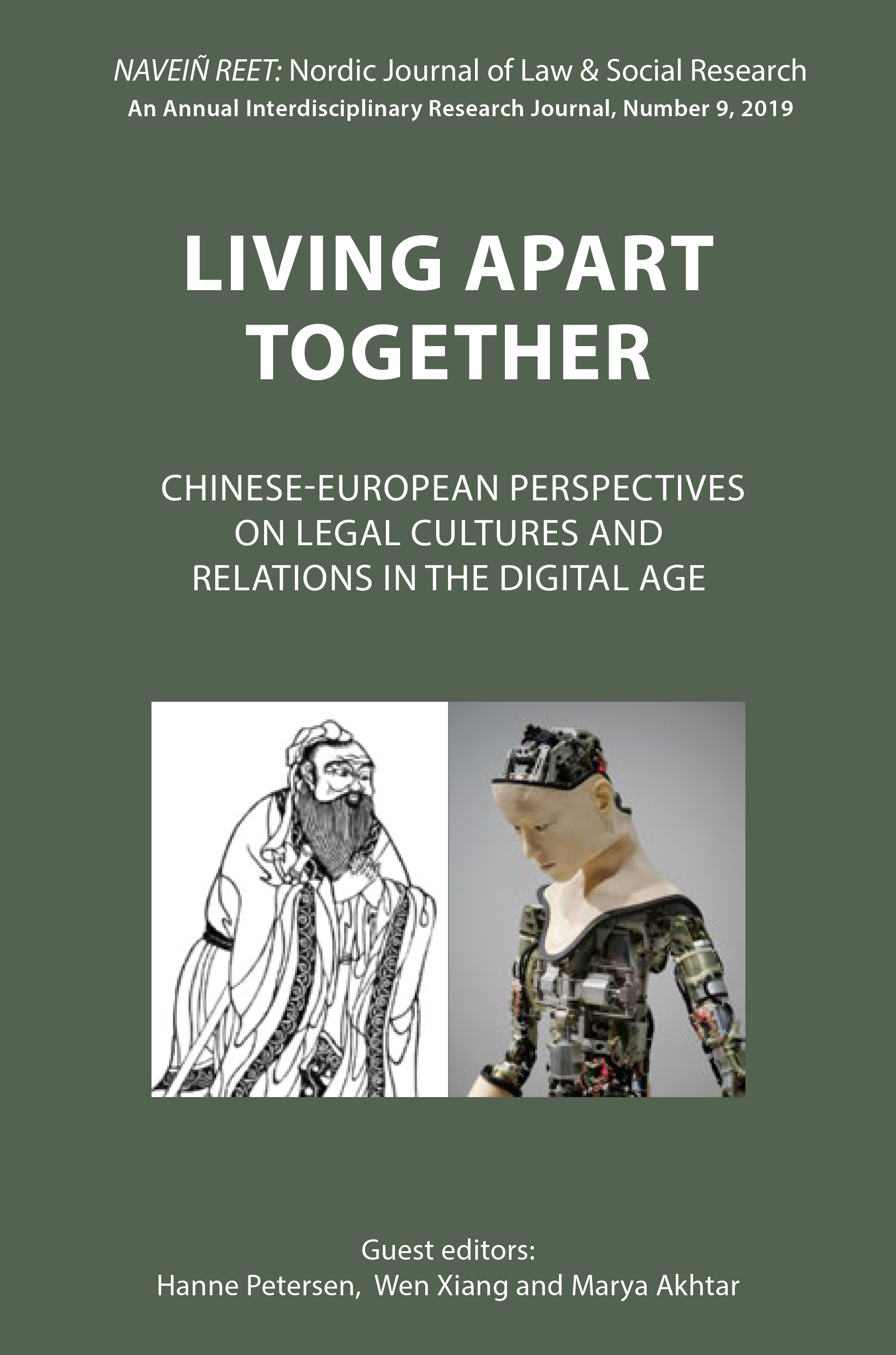Digitalization and Dissent in Legal Cultures. Chinese and Other Perspectives
DOI:
https://doi.org/10.7146/nnjlsr.v1i9.122155Abstract
The concept and the dynamics of dissent (e.g. how manifestations of dissent are formed, channeled, promoted or stifled) are not sufficiently studied despite their tremendous importance in times of digitalization of social life. This article discusses the impact that digitalization, in general and in specific settings, is having on various forms of dissent. It is built from a theoretical and empirical socio-legal investigation about dissent, its manifestations, and reactions to it. It reflects the author’s effort to categorize dissent, address its importance, and formulate a comprehensive concept that remains missing in the literature. The article shall illustrate the argument that the impact of digitalization on dissent is mediated by legal culture and the wider societal context. It discusses examples of new digital technologies and their relations with the idea of dissent in different legal cultures. The focus is on greater China (the mainland, Macau and Hong Kong) and Brazil.
Downloads
Published
How to Cite
Issue
Section
License
Counting from number 12 (2022), articles published in NNJLSR are licensed under Attribution 4.0 International (CC BY 4.0). Readers are allowed to copy and redistribute the articles in any medium or format, to adapt and revise the articles, and use the articles for commercial purposes, provided that the readers give appropriate credits.
No Creative Commons licenses are applied on articles in number 1 (2009)-11 (2021). All rights reserved by the authors. Readers are allowed to download, read, and link to the articles published in volume 1 (2009)-11 (2021), but they may not republish or redistribute these articles without permission of the authors.

